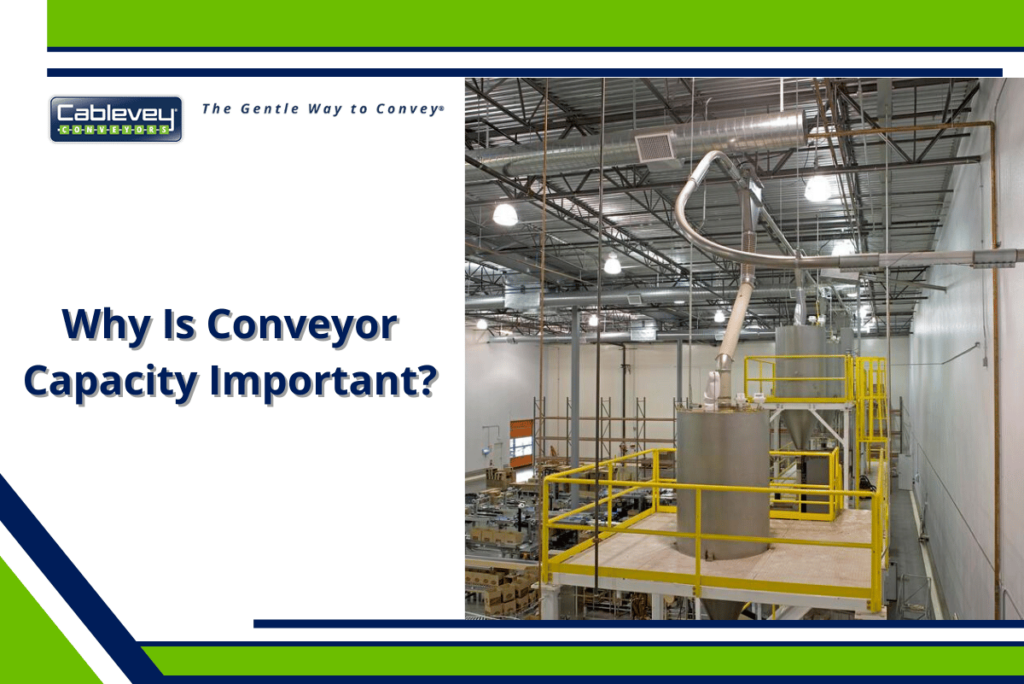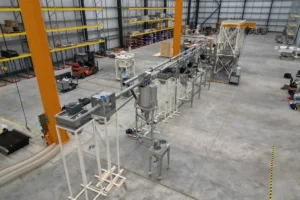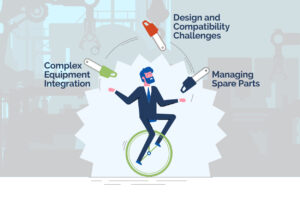In the ever-evolving landscape of industrial operations, the pivotal role of conveyors cannot be overstated. But why is conveyor capacity important? Join us on a journey to explore the critical significance of conveyor capacity, understanding its profound impact on operational efficiency, cost-effectiveness, and the overall success of businesses worldwide.
Why Is Conveyor Capacity Important?
Conveyor capacity is vital for efficient material handling in industrial settings. It determines how much weight and volume a conveying system can handle, influencing production speed, operational efficiency, and overall system cost. Choosing the right capacity ensures optimal performance, prevents bottlenecks, and supports seamless material flow in your business operations.
If your product is moving from point A to point B, does it really matter how long it takes as long as it gets there eventually? Actually, yes, it does matter. The conveyor capacity can have a big impact on your business in many ways, such as:
- Efficiency – If conveyors can’t keep up with the pace of your production process, they will slow everything down and decrease your overall efficiency. On the other hand, if they have more capacity than you need, you are wasting valuable resources, including money, energy, and space.
- Cost – These systems are not cheap. So, it’s important to ensure you are getting the most bang for your buck by choosing a system with the capacity that meets your needs. If you choose one that is too small, you will need to replace or upgrade it sooner than you would have if you had chosen one with a more optimal capacity.
- Product quality – If your product is spending too much time on the conveyor (or is moving too fast), it can be damaged and lose its quality. This can lead to costly repairs or replacements down the road.
Before you make the final decision regarding a new conveying system, it’s imperative to take the capacity into account. This will help you choose a system that is not only efficient and cost-effective but also one that won’t jeopardize the quality of your product.
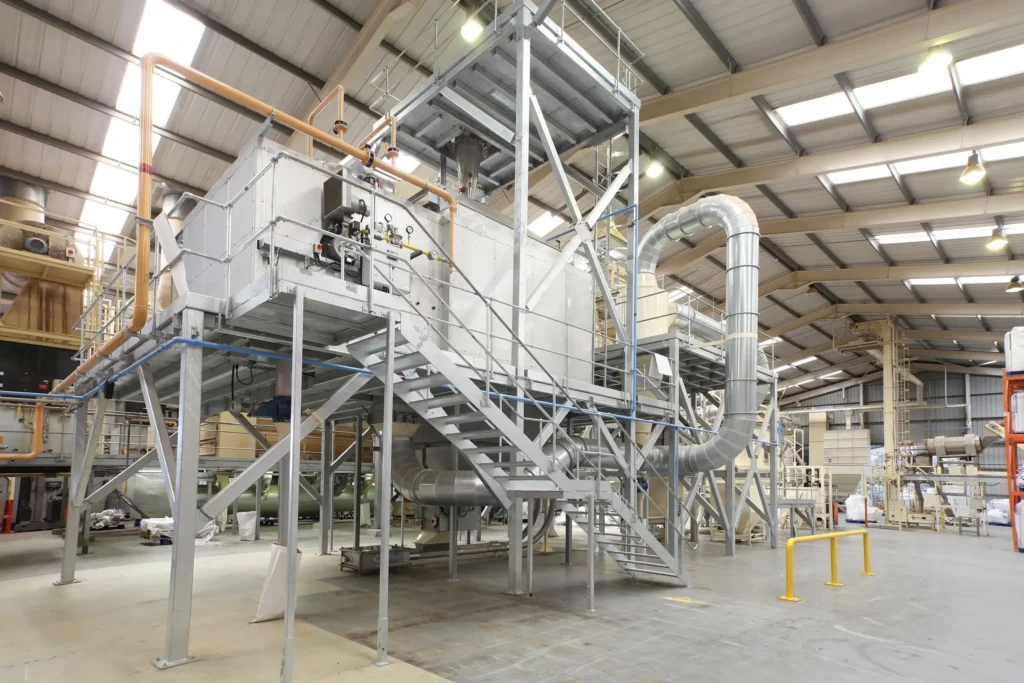
The Versatility and Vitality of Conveyor Solutions in Industrial Operations
By definition, a conveyor is a machine used to move material from one point to another. It comes in a wide range of sizes and styles, making it a versatile piece of equipment for many different applications. You can find conveyor engineering solutions in almost any industrial facility worldwide, from airports to factories to warehouses.
Selecting the right tubular conveying system for your business is a crucial step in streamlining your production process and ensuring efficient material handling. There are many benefits to having a conveying system in place, especially an automatic conveyor system, compared to manual material handling.
One of the most important factors to consider when choosing a conveyor is its capacity, or how much it can handle in terms of weight and volume. This will vary depending on the type of product you are moving, as well as the speed and distance the product needs to travel.
What Is a Conveyor Capacity?
In simple terms, conveying capacity is the maximum amount of product a system can move in a given amount of time. This is typically measured in weight per hour, but you may sometimes see it given in terms of volume per hour.
Even though it sounds like a straightforward concept, calculating maximum capacity can be a bit tricky because there are so many factors to consider.
- The Type of Product Being Conveyed
Even if all other things are equal, the capacity will vary depending on the kind of material conveyed. Many materials and product characteristics can affect how much product conveyors can move, such as size, shape, bulk density or weight per cubic foot, tendency to pack or bridge, and more.
- The Speed of the Conveyor
Most people think that conveying capacity is only dependent on its speed. While this is not accurate, speed is still an important factor. The faster the system, the more product it can move in a given amount of time.
- The Space of the Conveyor
Space can mean different things in differently shaped conveyors. For example, if you are using a roller conveyor, the space will be the width of the rollers. If you are using a belt conveyor system, the space will be the width of the belt. For chain conveyors or tube conveyors, the space will be the circumference of their tubes. Logic dictates that the more space a system has, the more product it can carry.
- The Angle of Inclination
Conveyor technologies don’t only have to be horizontal. Often, they can’t be horizontal. The angle of the conveyor will affect its capacity. A horizontal system can typically move more product than the one at an incline. However, a lot of other factors will also play a role here.
- The Distance the Product Needs to Travel
All other things being equal, the longer the distance the product needs to travel, the lower the conveying capacity will be simply because the product will spend more time on the system.
Is Bigger Always Better?
During the decision-making process, the allure of choosing a conveying system with the highest capacity can be tempting. Yet, the mantra “more is better” doesn’t always hold true. It’s crucial to strike a balance, considering factors like automated conveyor systems, conveyor belt system size, and the expertise of conveyor systems manufacturers.
Avoid pitfalls by ensuring your chosen system aligns with your current needs, space constraints, and budget. Anticipating future growth? Consult with experts to navigate the complexities and invest wisely in a conveying system that accommodates both present and future demands, ensuring sustained efficiency for your business.
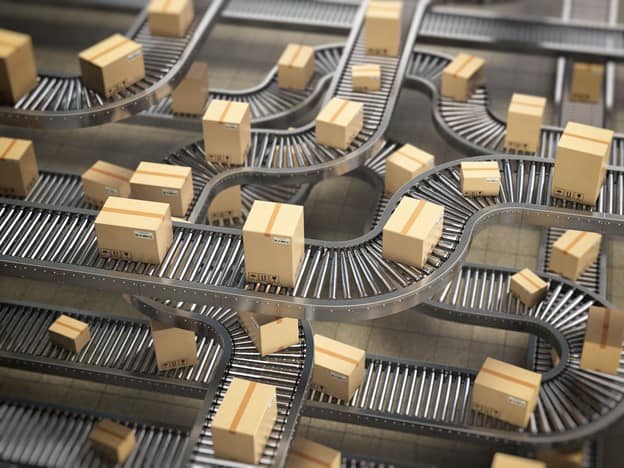
Future-Proofing Your Operations With a Modular Automated Conveyor System
If you’re concerned whether the conveying system you invest in now will have enough capacity one or two (or more) years down the line, you might want to consider a modular design. A modular conveying design is a system made up of individual modules that can be added on as needed. This means that you can start with a small system and then add more modules later as your needs change and grow.
Modular conveyors are also much easier to install than traditional conveyor belt systems, which can save you time and money in the long run. Consider the added benefit of conveyor installation supervision for a smooth and efficient integration process, ensuring optimal performance from the start.
Enhance Your Product Handling With Tube Conveying Systems
Considered one of the most effective conveying solutions for food processing businesses, the tubular cable and disc system stands out for its exceptional performance. Embraced by industries such as breakfast cereal, snack food, pet food, and nut processing, this conveyor type excels in gently handling products while maintaining high capacity.
Even though you’re enjoying the traditional systems from leading belt conveyor manufacturers, it’s time to give innovation its place in your production. This top-notch system offers a range of advantages, including:
- Low energy consumption,
- Sanitary design,
- No environmental contamination,
- No product contamination,
- Ease of installation.
Precision and Performance – Components and Capacity of the Tubular Cable and Disc System
The tubular cable and disc system is made up of two parts: a circular tube that the product travels through and a series of discs that move inside the tube. The discs help to move the product along, but they are also specially designed to minimize damage and breakage. Cablevey tube conveyors can handle capacities of up to 80,000 pounds (36,287 kg) per hour.
When choosing tubular conveying, it’s important to select one made from food-grade materials that can be easily cleaned and sanitized. This will help to ensure the safety of your product and keep your business in compliance with all food safety regulations. All Cablevey conveyors meet these criteria.
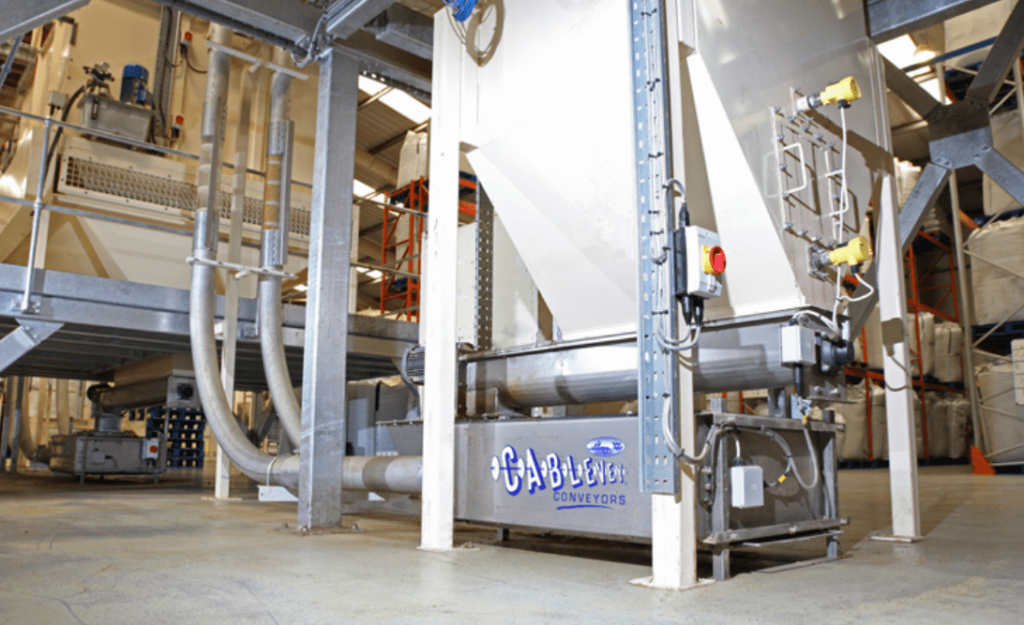
Elevate Your Material Handling Efficiency With Cablevey Conveyors
As a broad concept, the capacity of a conveying system is easy to understand – it’s simply the maximum amount of product that a conveyor can transport in a given time. However, many factors can affect the capacity, from the type of product being transported to the specific properties of the system itself.
When choosing new manufacturing conveyor systems, it’s important to keep the capacity in mind. Consider also the size of your operation, your budget, and your future needs. With the help of an expert, you can find the perfect conveying system for your business.
If you need help calculating the optimal capacity of the conveying system for your needs or selecting the right one for your operation, contact Cablevey Conveyors today. Our team of experts will be happy to assist you in finding the perfect solution for your business.

